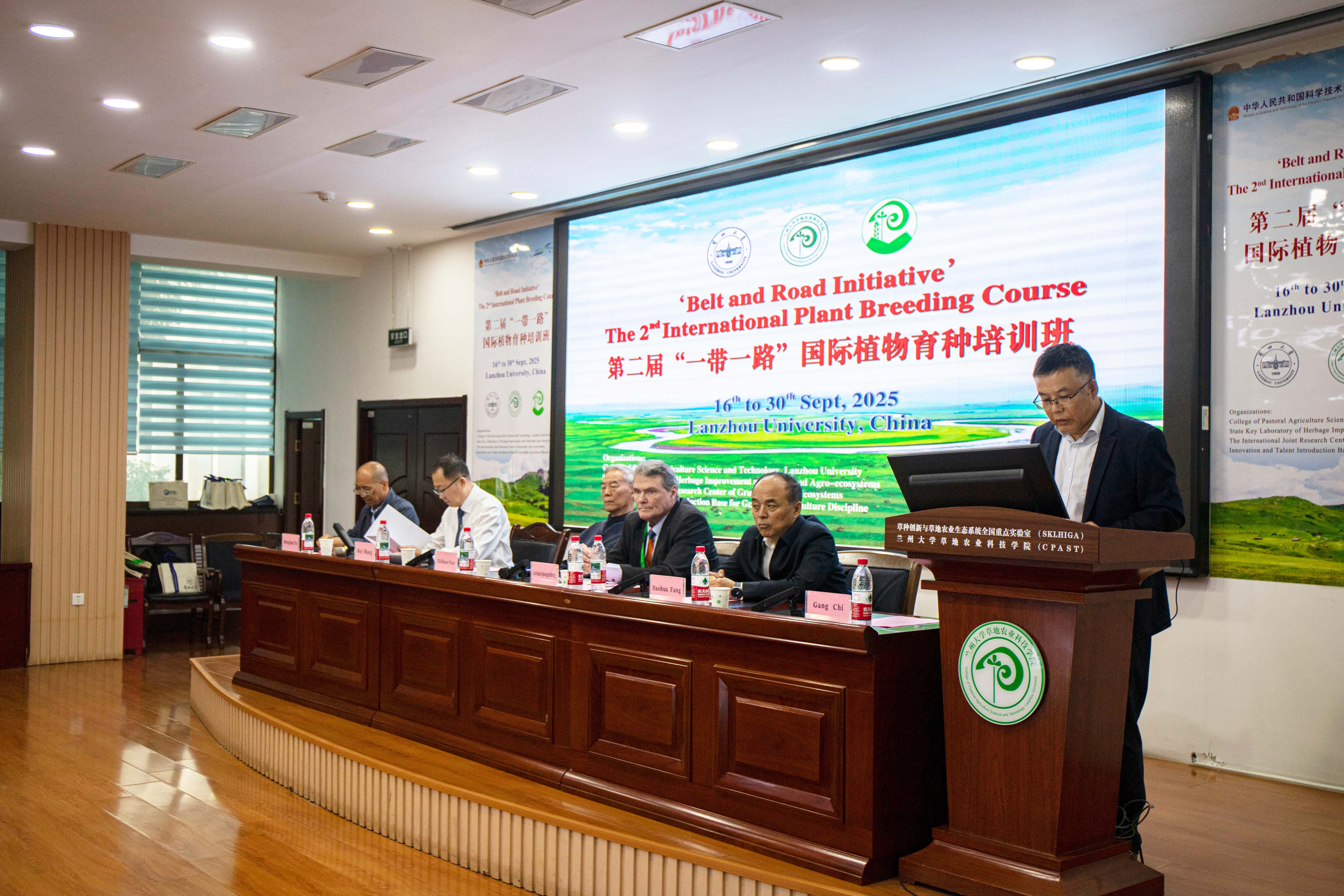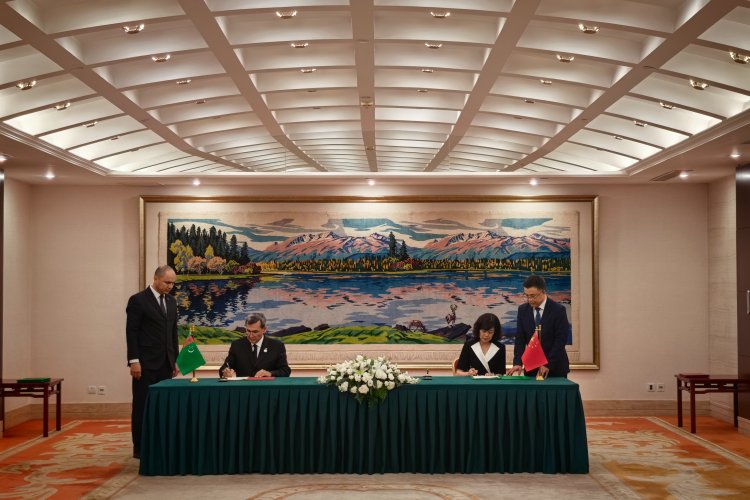On Sept. 22, the 10th Anniversary and the 2025 Annual Forum of the University Alliance of Belt & Road (UAB&R), hosted by Lanzhou University (LZU), opened in Dunhuang, Gansu province.
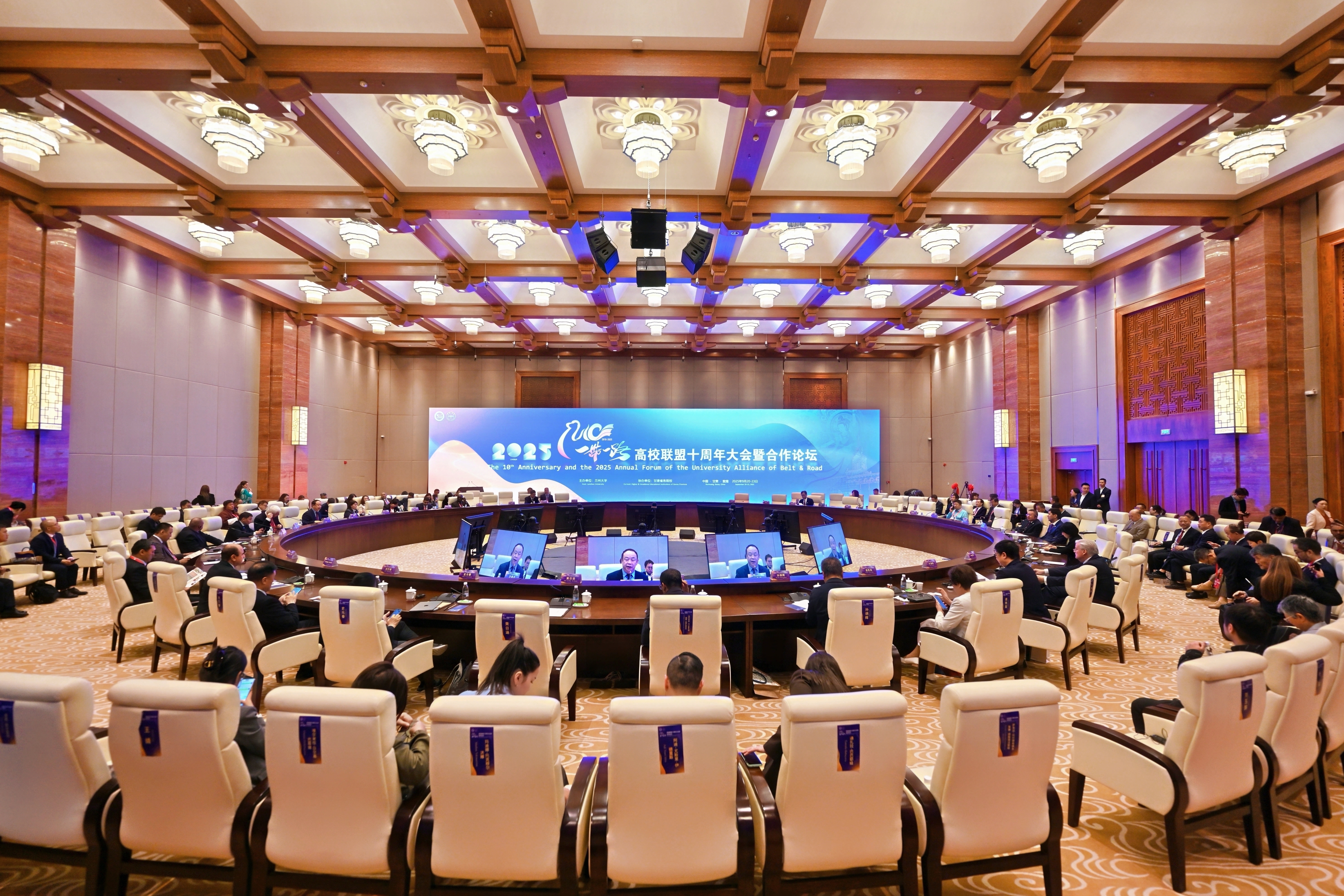
The attendees included Mrs. HE Wei, vice secretary and vice chairman of the Party Leadership Group of Gansu Provincial Committee of the Chinese People’s Political Consultative Conference (China); Prof. MA Xiaojie, Party committee secretary of LZU (China); Mr. ZHAO Lei, deputy director-general of Department of International Cooperation and Exchanges of Ministry of Education (China); Prof. Mushtaq Ahmad, fellow of TWAS and PAS and professor of Quaid-i-Azam University (Pakistan); Prof. Gulchekhra Shovkatovna Rikhsieva, rector of Tashkent State University of Oriental Studies (Uzbekistan); CAO Hong, executive vice president of LZU; ZHENG Yu, deputy secretary of the Gansu Provincial Education Work Committee; and GONG Jiajia, vice director-general of Gansu Provincial Department of Culture and Tourism. There were also nearly 200 experts and scholars from more than 20 countries, including Russia, Pakistan, Uzbekistan, Kazakhstan and Croatia. They together explored new directions and pathways for international education under the evolving framework of the Belt and Road Initiative. The opening ceremony of the forum was presided over by SHA Yongzhong, vice president of LZU.
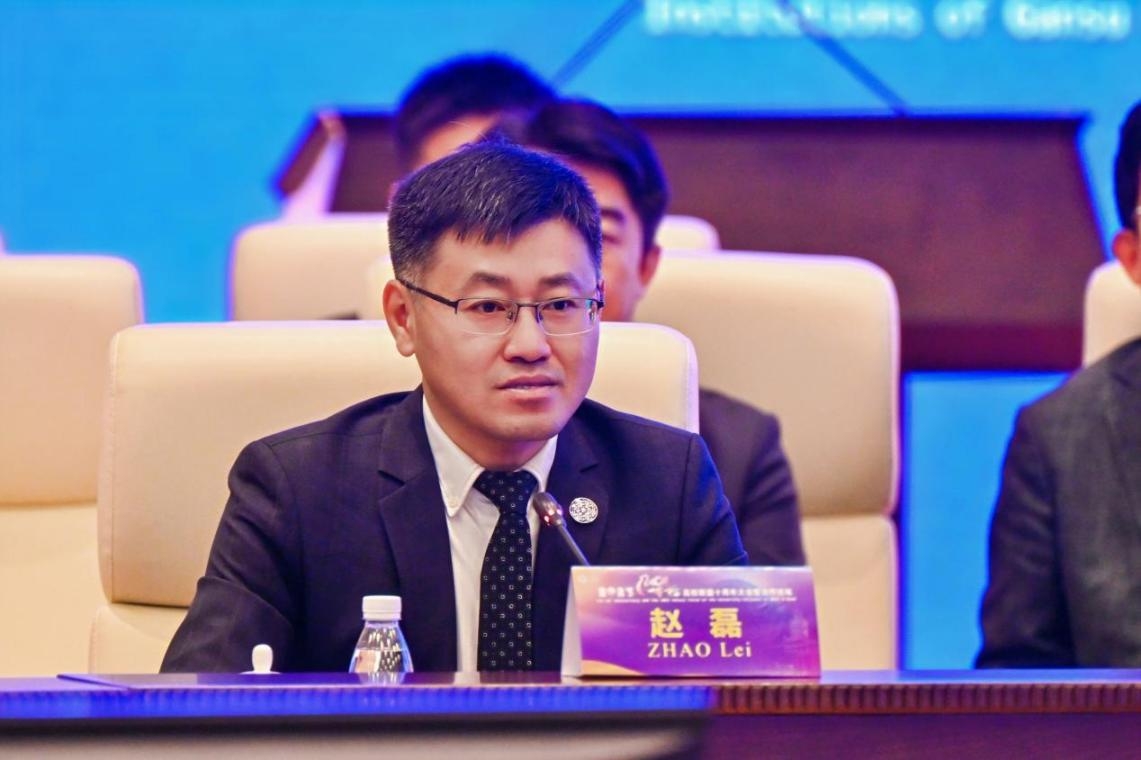
In his address, ZHAO Lei noted that educational cooperation under the Belt and Road Initiative has yielded fruitful results, producing five “golden name cards” in higher education, vocational education, teacher education, digital education, and student exchanges. With the support and initiative of LZU and other Chinese and foreign universities, UAB&R has now entered its second decade. ZHAO hopes that the alliance would further strengthen its role as a bridge and platform, advancing educational exchange and cooperation toward greater quality and sustainability. He emphasized that alliance members should align with the talent needs of the Belt and Road, cultivating professionals in engineering technology and management while exploring new pathways for training in global governance. He called for closer cooperation in fundamental and interdisciplinary fields by leveraging joint laboratories and other collaborative platforms. We also need to make fuller use of culture, arts, sports and science to enrich multi-level student exchange programs, he said.
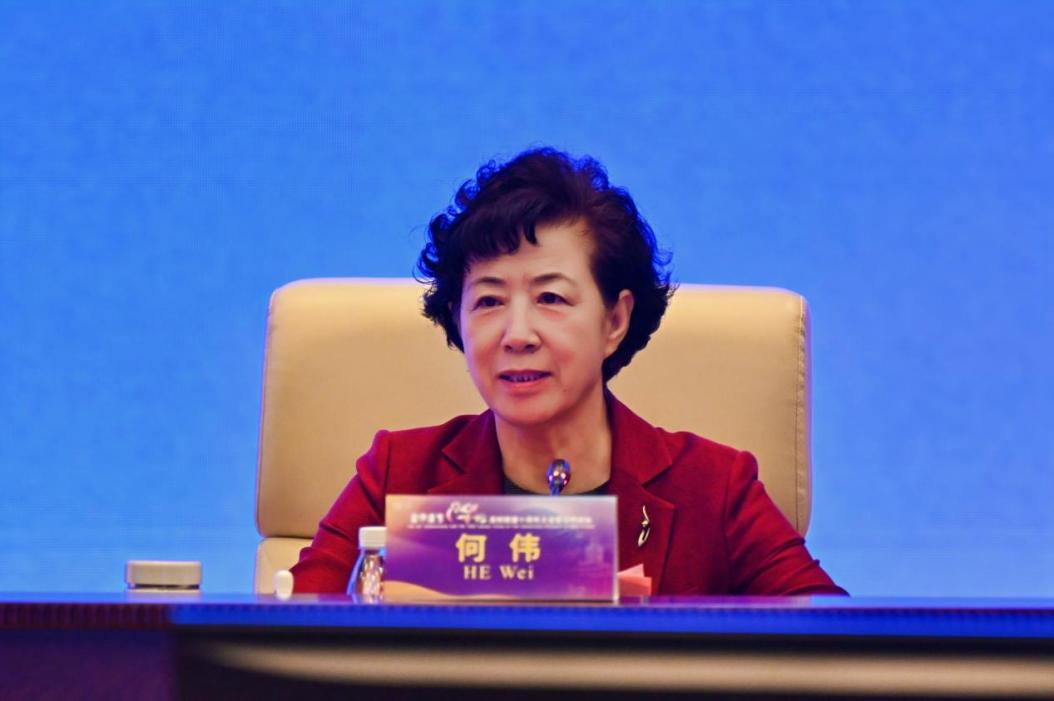
HE Wei emphasized that UAB&R members should work together to build an educational high ground for cultivating high-caliber talent with both professional expertise and cross-cultural understanding, who will provide strong support for regional economic development. She called for continuously strengthening scientific research exchanges, focusing on global issues such as industrial chain cooperation, ecological protection, and low-carbon transition. She also looks forward to deepened collaboration among universities, industry and research institutions so that scientific achievements can better serve countries and benefit humanity. She urged the alliance to keep expanding its areas of cooperation, exploring potential in inter-university exchanges, joint education programs, collaborative research, expert networking, and faculty and student visits, thereby taking more ambitious steps in educational openness and collaboration. She also stressed the importance of deepening people-to-people ties through diverse forms of cultural, artistic and sports exchanges. Efforts must be made to foster mutual understanding and closer bonds, and thereby laying a stronger social and public foundation for the joint development of the Belt and Road, she said.
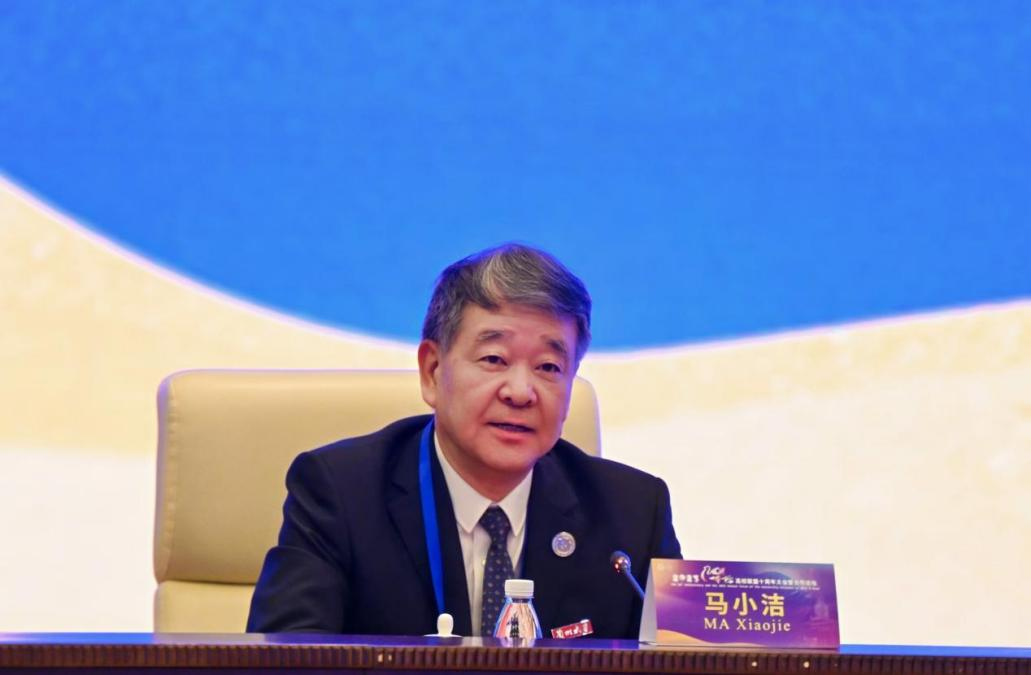
MA Xiaojie remarked that higher education serves as an essential bridge for cultural exchange and scientific cooperation, and is an indispensable force in the development of the Belt and Road Initiative. Over the past decade, UAB&R has actively built multilateral mechanisms for educational cooperation and worked to foster a high-level, sustainable community of higher education. Standing at a new historical starting point, he called on the members to jointly advance Belt and Road educational cooperation into a new stage marked by higher quality and greater sustainability. This includes promoting mutual recognition of degrees, credit transfer, and open access to courses, as well as jointly developing and sharing digital education resources. He urged stronger interdisciplinary and cross-border research collaboration to meet the sustainable development needs of Belt and Road countries, with joint laboratories and innovation platforms established in areas such as climate change and the digital economy. He also encouraged the member universities to participate in international Chinese-language education and to explore more flexible and diverse models of cooperation, thereby enhancing the alliance’s influence and voice in global education governance and shaping it into a model platform for educational cooperation and cultural exchange under the Belt and Road.
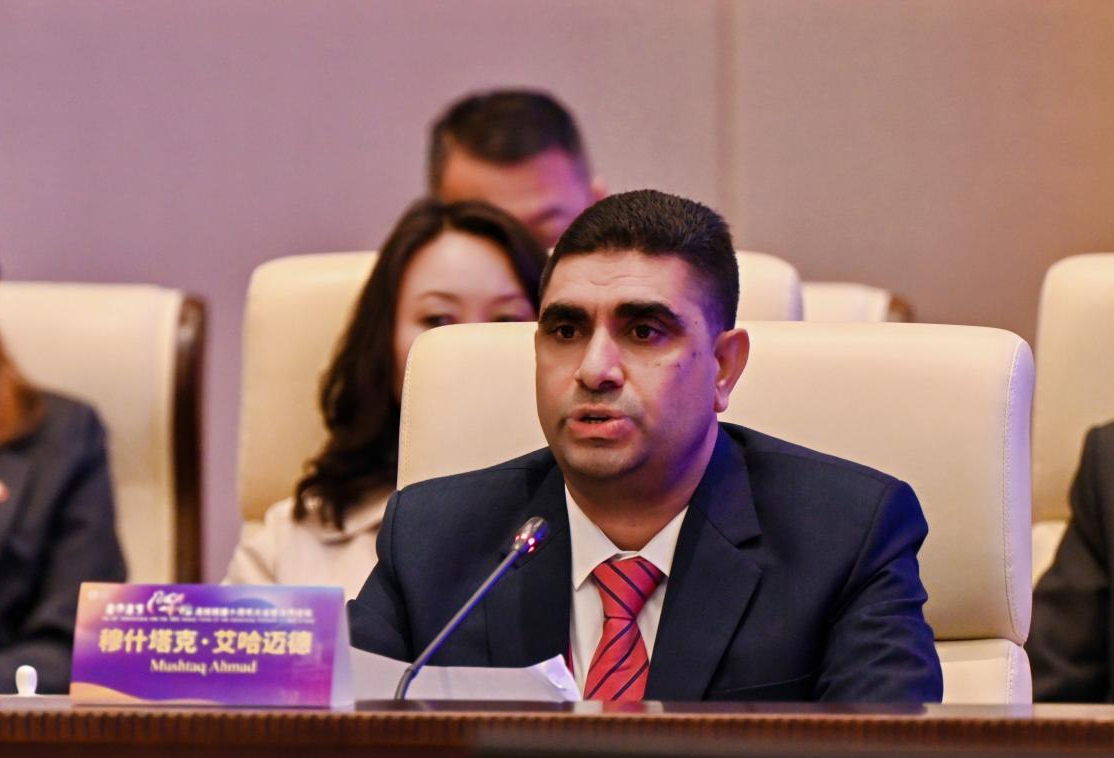
In his address, Prof. Mushtaq Ahmad, fellow of TWAS and PAS and professor of Quaid-i-Azam University, Pakistan, stated that UAB&R has demonstrated to the world that knowledge can be the most powerful force for peace, prosperity, and sustainable development. Looking to the future, he proposed that the alliance adopt three guiding principles: fairness, excellence, and sustainability. This means ensuring that students and scholars from all regions enjoy equal opportunities to learn and contribute; advancing world-class interdisciplinary research to address the major challenges facing humanity; and building enduring partnerships rooted in friendship and trust that span generations.
In a video address, H.E. Prof. Amr Ezzat Salama, secretary general of Association of Arab Universities, emphasized that the Belt and Road Initiative is not only about trade routes and infrastructure, but also about building bridges between people, cultures, and universities. He noted that cooperation between China and Arab countries in higher education could develop in three areas: first, through joint research on issues of vital social importance such as food security, digital transformation, climate change, and sustainable energy; second, by promoting the mobility of students and faculty through expanded scholarships, exchange programs, and joint degree offerings, enabling young people to gain global experience; and third, through digital collaboration by establishing shared virtual laboratories, online seminars, and open data platforms.
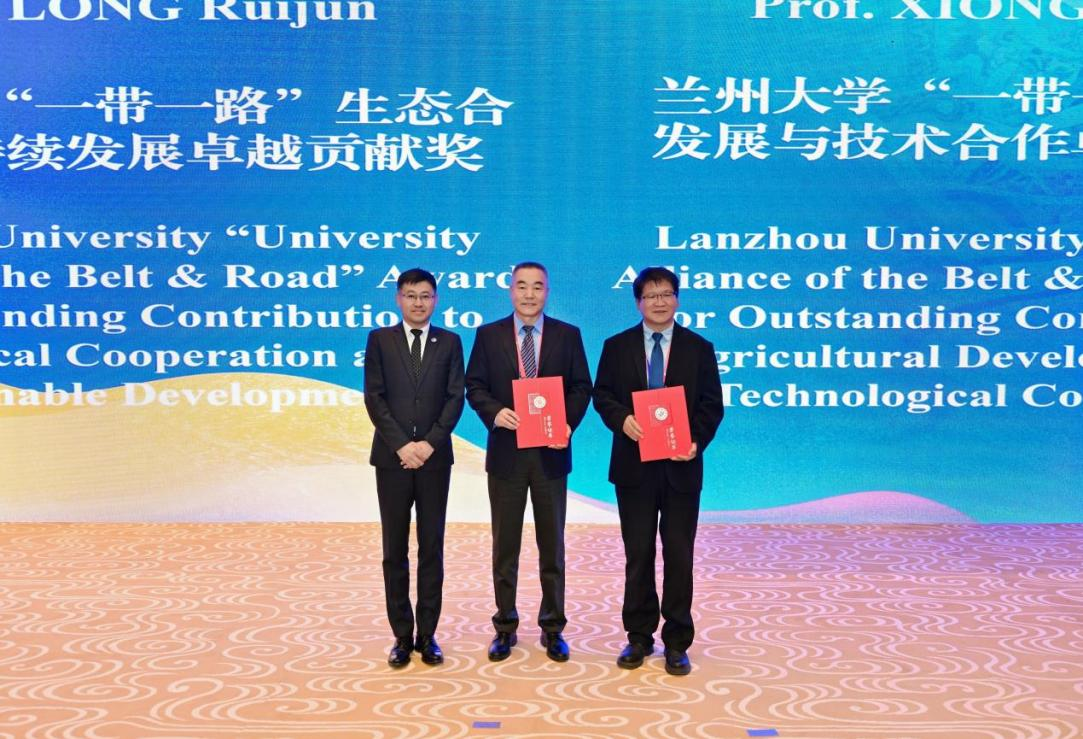
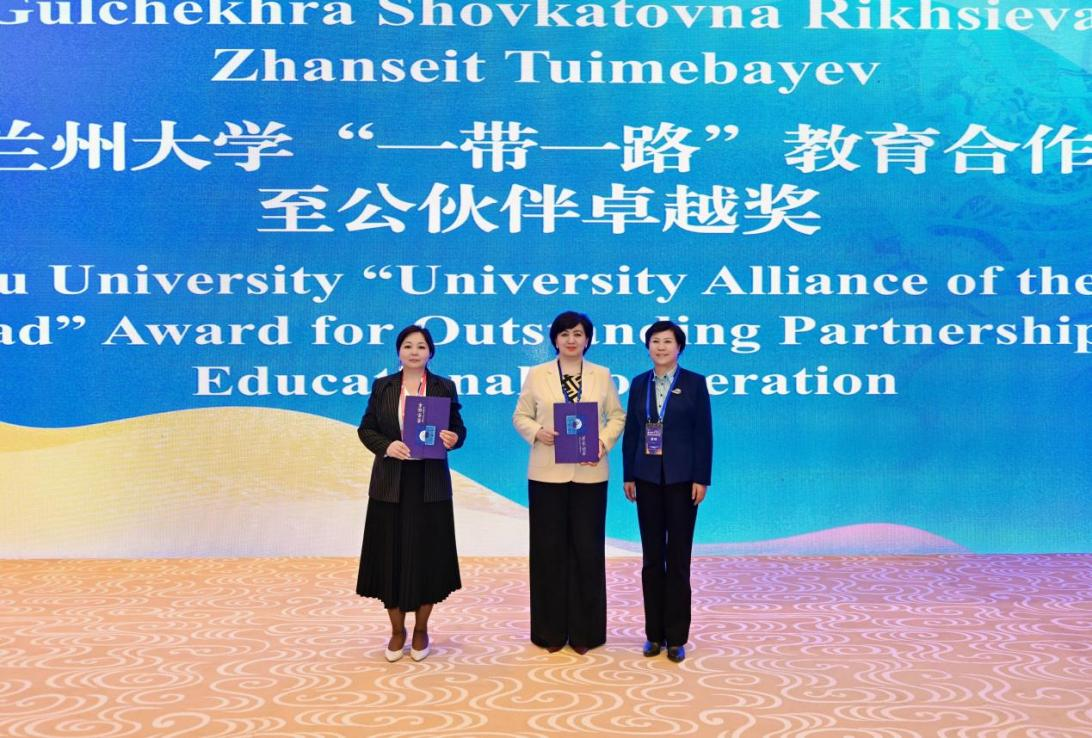
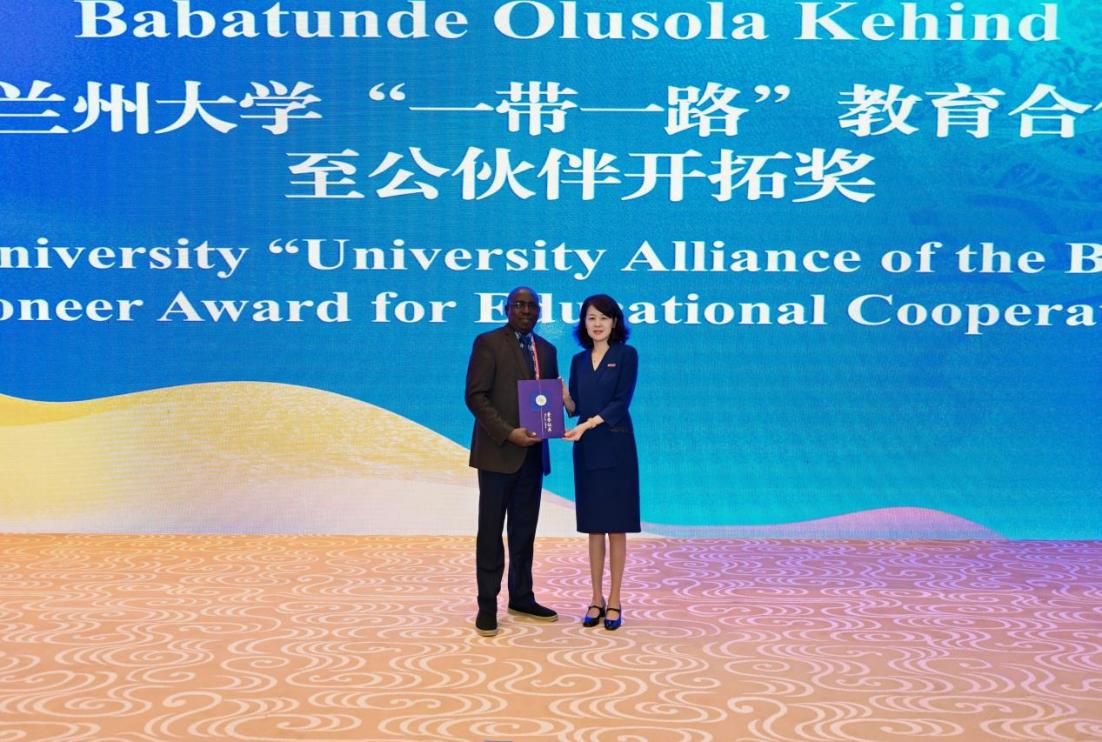
The forum also featured the UAB&R Education Cooperation Awards. Prof. LONG Ruijun of LZU received the Outstanding Contribution Award for Ecological Cooperation and Sustainable Development, while Prof. XIONG Youcai, also of LZU, was honored with the Outstanding Contribution Award for Agricultural Development and Technical Cooperation. Prof. Gulchekhra Shovkatovna Rikhsieva, rector of Tashkent State University of Oriental Studies (Uzbekistan), and Prof. Tuimebayev Zhanseit Kanseituly, rector of Al-Farabi Kazakh National University, received the Outstanding Partner Award for Fair Cooperation. Prof. Babatunde Olusola Kehinde, vice chancellor of Federal University of Agriculture, Abeokuta (Nigeria), and Prof. Zhuraltabek Dilshadbekovich Kuvatov, rector of Kokand University Andijan Branch (Uzbekistan), were presented with the Outstanding Partner Award for Pioneering Cooperation.
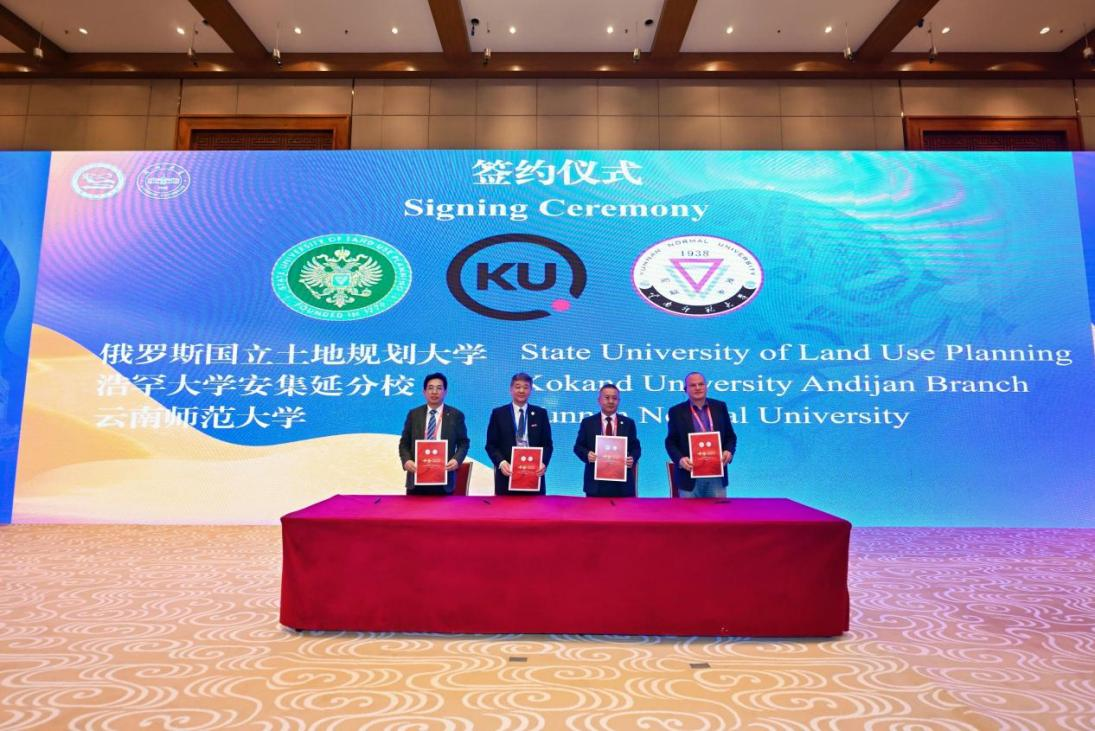
Later that day, MA Xiaojie signed accession agreements with new UAB&R members: Federal University of Agriculture, Abeokuta (Nigeria); Tashkent State University of Oriental Studies (Uzbekistan); NPJSC Toraighyrov University (Kazakhstan); Urgench State University (Uzbekistan); State University of Land Use Planning (Russia); and Kokand University Andijan Branch (Uzbekistan).
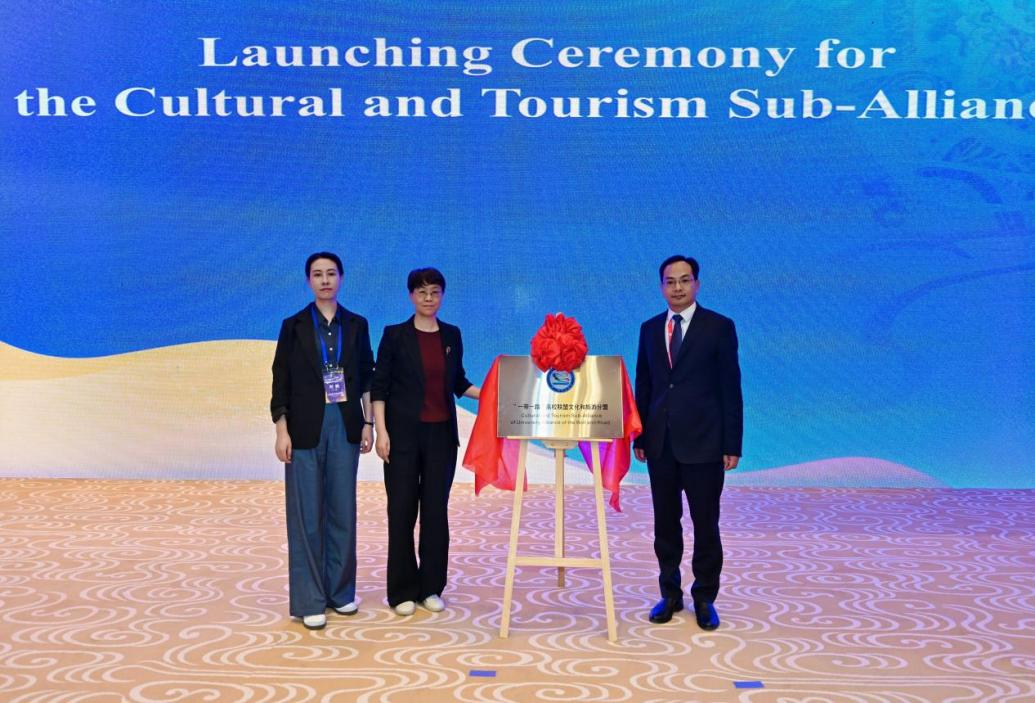
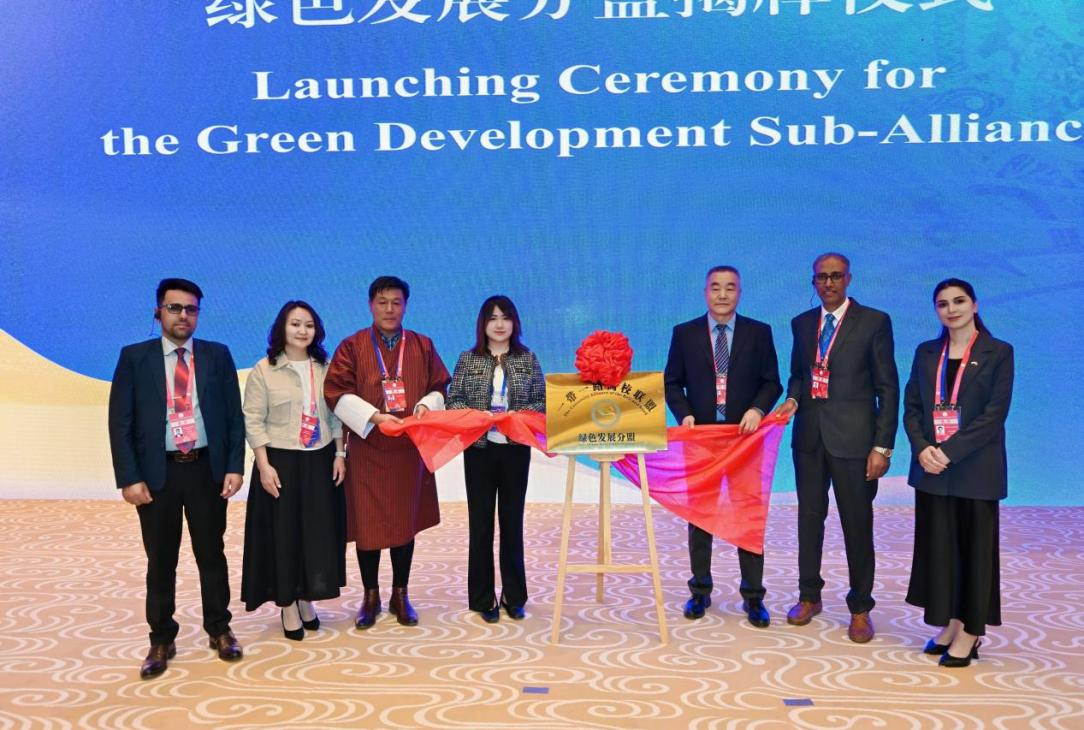
On the same day, two new sub-alliances were launched under UAB&R: the Cultural and Tourism Sub-Alliance and the Green Development Sub-Alliance. The Cultural and Tourism Sub-Alliance will focus on long-term cooperation in areas such as the preservation of Silk Road cultural heritage, the training of cross-border tourism professionals, and innovation in the cultural and tourism industries. The Green Development Sub-Alliance will concentrate on ecological and environmental protection research, the advancement of green energy technologies, and the training of talent for low-carbon development.
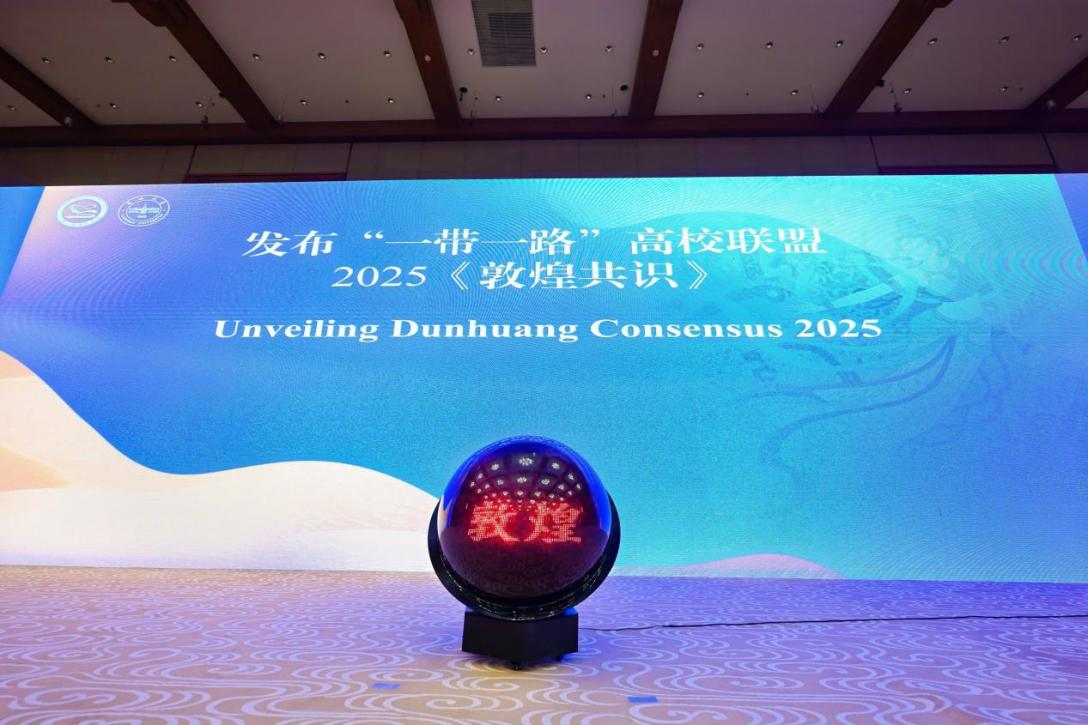
At the forum, UAB&R unveiled “Dunhuang Consensus 2025”, which aims to create a broader platform for dialogue and cooperation under the Belt and Road Initiative.
During the keynote speech session, addresses were delivered in turn by Prof. XING Guangcheng, member of Chinese Academy of Social Sciences and senior researcher and former director of Institute of Chinese Borderland Studies of Chinese Academy of Social Sciences (China); Prof. ZHANG Xiaofeng, deputy secretary of the Party Committee of the University of International Business and Economics (China); Prof. CAO Yong’an, chairperson of the board of Qiqihar Institute of Engineering (China); Prof. Đuro Njavro, president of Zagreb School of Economics and Management (Croatia); Prof. SHI Yuanchun, president of Qinghai University (China); Prof. Gulchekhra Shovkatovna Rikhsieva, rector of Tashkent State University of Oriental Studies (Uzbekistan); Prof. JIN Gang, vice president of Xinjiang University (China); Dr. Ye Hailin, president of China-Africa Institute and director of Institute of West Asia and Afirican Studies of Chinese Academy of Social Sciences; Mrs. TAN Xiuying, editor-in-chief of International Security Studies at the University of International Relations (China); and Prof. Nie Lei, vice president of Lanzhou Jiaotong University (China).
The forum, themed “A Decade Together for a Smarter Future—Writing a New Chapter of the Belt & Road Education Community” featured five parallel sessions: The Belt and Road Initiative: China and Central & South Asia Cooperation and Development; New Energy and Carbon Neutrality Initiatives; AI-Driven Transformation in Higher Education and Cultural Heritage Innovation; Climate Change and Global Food Security; and Silk Road Civilizations: Mutual Learning and the Future of International Chinese Education in the Digital Age.
In 2015, at the initiative of Gansu Provincial Government, LZU, together with 47 universities from eight countries and regions, issued “Dunhuang Consensus” and launched UAB&R, marking the beginning of a collaborative higher education community. Over the past decade, the alliance has steadily expanded its network, and now it encompasses 196 universities across 29 countries and regions on five continents. Leveraging education as a bridge, it has transcended geographical and cultural boundaries to build a collaborative network spanning Asia, Europe, Africa, North America, and South America.
As the secretariat of the alliance, LZU has consistently upheld the principle of “joint construction and shared benefits, serving the broader mission.” The university collaborates with partner institutions on regional and country-specific research and co-develops high-level think tanks; it promotes the construction of a Belt and Road meteorological observation network and implements multiple science and technology projects in areas such as dryland agriculture, ecological restoration, and desertification control to strengthen regional disaster prevention and mitigation capabilities. It is also deeply involved in China-Africa and China-Central Asia scientific cooperation, contributing intellectual resources to addressing global development challenges.


